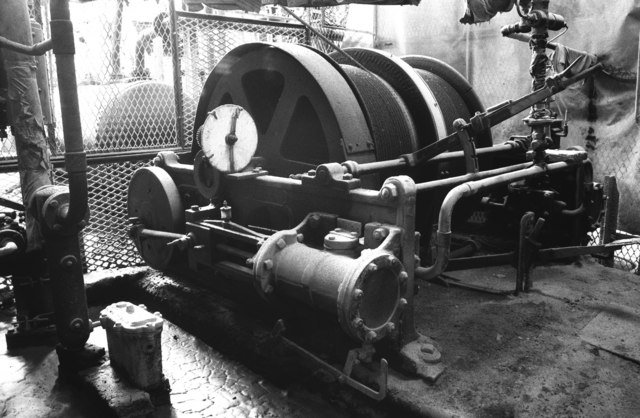All about Educare Diploma: Options and Limitations: In the ever-evolving field of education, an Educare Diploma offers aspiring educators a solid foundation to build their careers upon. This comprehensive guide aims to explore the various options and limitations of an Educare Diploma, helping you make informed decisions about your academic and professional journey. From qualification requirements to the potential salary you can expect, this guide will delve into the many facets of pursuing an Educare Diploma.
An Educare Diploma equips educators with the skills and knowledge needed to create a nurturing and effective learning environment for young children.
In the following sections, we will address the benefits of obtaining this diploma, including the grades you will be qualified to teach and how it may impact your salary. Furthermore, we will discuss the possibility of furthering your studies and the potential pathways to obtaining a Postgraduate Certificate in Education (PGCE) with an Educare Diploma.
Teaching is a profession that requires passion, dedication, and a strong educational background. With an Educare Diploma in hand, you will be well-equipped to teach young children in the foundation phase, which typically includes Grades 1 to 3. However, specific grade levels you can teach may vary depending on the program and regional regulations. In addition to teaching, the diploma may also open up opportunities for further studies, allowing you to advance your career and deepen your knowledge in the field of education.
Qualifying for an Educare Diploma
An Educare Diploma (N6) is a popular choice for students in South Africa who wish to pursue a career in early childhood development and education. Offered by Technical and Vocational Education and Training (TVET) colleges, the program is designed to equip students with the skills and knowledge necessary to work in various childcare settings, including pre-schools, nurseries, and daycare centers.
To qualify for an Educare Diploma (N6) in South Africa, follow these steps:
- Meet basic entry requirements: Candidates must have a high school diploma or an equivalent qualification, such as the National Senior Certificate (NSC) or National Certificate (Vocational) Level 4. Depending on the institution, specific subject requirements or a minimum Achievement Point Score (APS) might be necessary.
- Complete N4 and N5 courses: Before enrolling in the N6 Educare Diploma, candidates should complete the N4 and N5 courses, which serve as a foundation for the advanced coursework in the N6 program. The N4 and N5 courses cover topics such as Educare Didactics, Child Health, and Education Planning and Management.
- Apply to a TVET college: Research various TVET colleges offering the Educare Diploma (N6) program and choose one that best suits your needs. Be sure to meet any additional requirements, such as minimum age, academic performance, or work experience in a related field. Complete the college application and submit the required documents, such as transcripts and proof of residency, before the deadline.
- Complete the N6 coursework: Once enrolled in the Educare Diploma (N6) program, students will cover advanced topics in early childhood development and education. Some of the subjects include Educare Didactics, Educational Psychology, and Daycare Management.
- Complete practical experience: As part of the program requirements, students must complete a minimum of 18 months of practical experience in an approved educational setting, such as a preschool, nursery, or daycare center. This hands-on experience is crucial for applying the theoretical knowledge gained in the classroom.
- Apply for the National N-Diploma: After successfully completing the N6 coursework and the required practical experience, students can apply for the National N-Diploma in Educare through the Department of Higher Education and Training (DHET). This diploma is a nationally recognized qualification and serves as a testament to the graduate’s expertise in early childhood development and education.
By completing these steps, students can earn an Educare Diploma (N6) in South Africa and embark on a rewarding career in early childhood development and education.
Educare Diploma Salary
The Educare Diploma is a qualification that is highly valued in South Africa, particularly within the education sector. Those who hold this diploma can work in a variety of positions, such as preschool teachers, educational administrators, and childcare providers. The salary that one can expect to earn with an Educare Diploma in South Africa varies depending on the specific position and level of experience.
Preschool teachers with an Educare Diploma can expect to earn an average salary of around R120,000 to R180,000 per year. Those with more experience or who hold additional qualifications may be able to earn up to R300,000 per year. Educational administrators with an Educare Diploma can earn anywhere from R180,000 to R500,000 per year, depending on their level of experience and the size of the educational institution they work for.
To increase your salary with an Educare Diploma, there are several strategies you can employ. Firstly, gaining more experience within your chosen field can lead to higher salaries. Taking on additional responsibilities or pursuing further education can also be a way to increase your earning potential.
Another way to increase your salary is to negotiate for higher pay during the hiring process or during performance evaluations. This may require some research into the market rates for your position and advocating for yourself during negotiations.
Finally, networking and building relationships with colleagues and mentors can lead to opportunities for career advancement and higher salaries. By staying up-to-date with industry trends and taking on leadership roles within your organization, you can demonstrate your value and potential for growth, which can lead to higher pay and better job opportunities.
Benefits of an Educare Diploma
There are several benefits to holding an Educare Diploma, including:
- Specialized knowledge: The diploma equips graduates with specialized knowledge in early childhood education, making them valuable assets in educational settings.
- Career opportunities: With an Educare Diploma, graduates can work in various educational settings, such as preschools, daycares, and primary schools.
- Job satisfaction: Educare professionals often find their work highly rewarding, as they play a critical role in shaping young minds and helping them develop essential skills for future success.
- Flexibility: The skills and knowledge gained through an Educare Diploma can translate into other careers in education or child development, providing flexibility in career options.
Grade Levels for Educare Diploma Holders
The answer to this question ultimately depends on the specific requirements of your potential employer. While some employers may accept an Educare certificate or diploma as sufficient qualifications to become a preschool teacher, others may require a more advanced degree such as a Bachelor of Education (B.Ed) in Early Childhood Development (ECD).
It’s important to note that while Educare courses are recognized in the industry, you may need to further your studies if you wish to work in a public school and become registered as a teacher. Additionally, if your goal is to teach Grade R or learners in the foundation phase, you will need to obtain a degree as these positions typically require more advanced qualifications.
If you’re interested in pursuing a career as a preschool teacher, it’s crucial to research the specific qualifications required by your potential employers and to consider furthering your education to increase your job opportunities and earning potential. Additionally, gaining experience and building a strong professional network can also be valuable steps in advancing your career in the education sector.
Pursuing a PGCE with an Educare Diploma
The Postgraduate Certificate in Education (PGCE) is a qualification that prepares graduates for teaching in primary, secondary, or further education settings. To pursue a PGCE, candidates must typically hold a bachelor’s degree or equivalent qualification. While an Educare Diploma may not be sufficient on its own for entry into a PGCE program, it can provide a foundation for further studies. Graduates may choose to complete a bachelor’s degree in education or a related field before applying for a PGCE program.
Further Studies with an Educare Diploma
An Educare Diploma can serve as a stepping stone for further studies in the field of education. Graduates may choose to pursue bachelor’s or master’s degrees in education or related disciplines, such as child development or special education. These additional qualifications can enhance career prospects and lead to positions with increased responsibility and salary potential.
What Jobs can i do with Educare Diploma
After completing an Educare N6 National Diploma course, there are numerous career opportunities that will be available to you. This qualification equips you with the skills and knowledge required to work with young children in various educational and caregiving settings. Below, we will explore some of the career options you can consider:
- Daycare Centre Administrator: As a daycare center administrator, you will be responsible for overseeing the daily operations of a daycare center. This includes managing staff, budgeting, ensuring compliance with regulations, and creating a safe and nurturing environment for the children. Additionally, you will work closely with parents and guardians to ensure that their child’s needs are being met.
- Au Pair: An au pair is a live-in childcare provider who typically works for a family, taking care of their children and helping with light housekeeping duties. In this role, you will need strong communication skills and a genuine love for working with children. Au pairs often have the opportunity to travel and experience different cultures, making it an exciting career choice for those with a sense of adventure.
- Babysitter: Babysitting is a popular job option for those with an Educare N6 National Diploma. As a babysitter, you will provide temporary childcare services for families, typically during evenings or weekends. Your responsibilities may include preparing meals, helping with homework, and ensuring the safety and well-being of the children in your care.
- Daycare Manager: In this role, you will be responsible for managing the daily operations of a daycare facility. You will supervise staff, plan and implement educational programs, manage budgets, and ensure that the facility adheres to all relevant regulations. As a daycare manager, you will also work closely with parents and guardians to address any concerns and ensure that their child is receiving the best possible care.
- Child Health and Nutrition Caretaker: As a child health and nutrition caretaker, you will work closely with children to promote their overall well-being. This may involve planning and preparing nutritious meals, monitoring growth and development, and educating children about the importance of a healthy lifestyle. You may find employment in various settings, such as schools, hospitals, or specialized childcare facilities.
- Start Your Own Crèche or Daycare: With an Educare N6 National Diploma, you have the knowledge and skills required to start your own crèche or daycare facility. This option allows you to be your own boss, set your hours, and create a nurturing environment tailored to your specific educational philosophy. Starting your own business can be challenging, but it can also be incredibly rewarding and fulfilling.
An Educare N6 National Diploma offers a wide range of career opportunities for individuals who are passionate about working with children. The skills and knowledge acquired during this course will enable you to succeed in various educational and caregiving settings, providing valuable support to children and their families.





